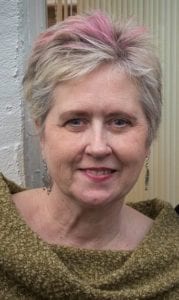Facing challenges together
 Dear Fulbrighters and friends,
Dear Fulbrighters and friends,
Our last newsletter was published in late January. What a difference a few months make. One thing is clear. At times like these we need empathy, civic-mindedness and cooperation more than ever. As we navigate these new waters, we often have to make decisions without the benefit of concrete, clear answers and must accept that decisions can only be made based on the best information available at any given time. Further, we must ensure that science, compassion and fairness are the foundations for those decisions.
Looking at the last few months through a Fulbright lens, the Commission and our grantees have certainly faced some challenges, but I am happy to say that we have met them head-on, thanks to excellent cooperation with our many partners. Fulbright Iceland focused from the outset on providing clear and frequent information to grantees and grantees select, conveying our commitment to keeping the interests of our grantees at the forefront of all our work. In our efforts, we found great support from the larger community of 49 Fulbright Commissions worldwide, who regularly consulted, commiserated, joined forces and shared information.
I must praise our fantastic group of 2019-2020 grantees, as well as those chosen as 2020-2021 grantees, both Icelanders and Americans. The challenges we faced affected them first and foremost and they met each one with understanding, good humor, and a determination to make the best of the situation. Some grantees were affected more than others, with grant periods shortened, and some were not even able to start their grants. Others had to quarantine and were limited to on-line learning only, missing out on important social and networking aspects of the grant period. I can say, with utmost admiration, that our grantees showed great understanding and maturity, even choosing to see this as part of their Fulbright learning experience. Incoming grantees did not complain about having to adjust grant periods and liaised with the commission to come up with workable solutions. While a few decided to re-apply next year, a few have already started their grants, and most are now waiting to start hopefully in the new year.
The US Embassy in Reykjavik and the Icelandic Ministry of Education have been important partners throughout this process, as we have worked with our colleagues at ECA to respond to a constantly changing situation. Commissions have, throughout this process, emphasized the need for a fully binational approach, given the binational nature of the program in our countries.
This is indeed a challenging time for higher education and research cooperation. Universities are adapting and we can expect that Fulbright will need to continue to be flexible and responsive. Fulbright Iceland is proud to be part of a strong and vibrant worldwide Fulbright community, where we are determined to meet future challenges, while continuing to learn, adapt and share. We will continue because the Fulbright program is important.




